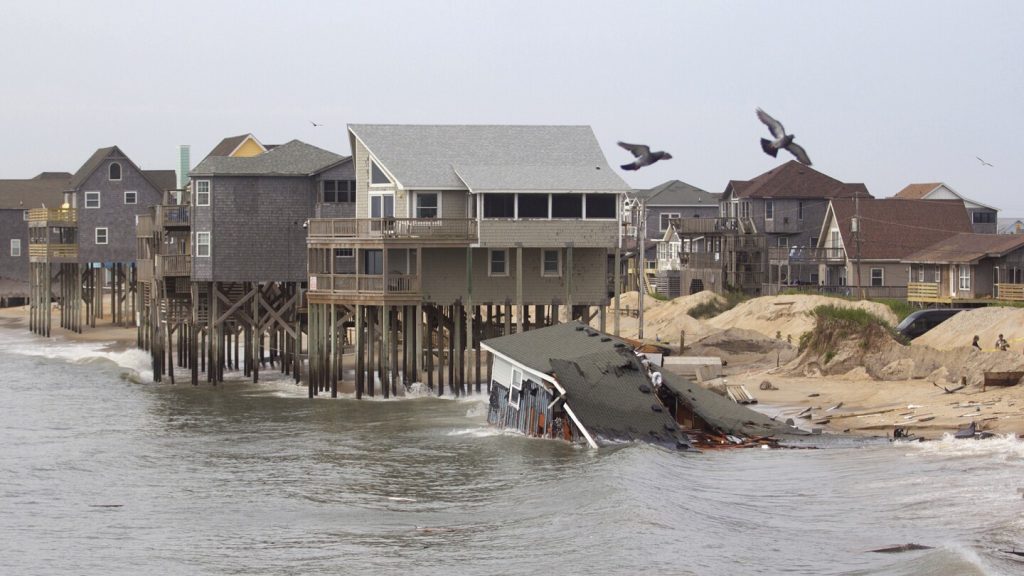The collapse of yet another house into the Atlantic Ocean along North Carolina’s coast has raised concerns about the vulnerability of the state’s barrier islands to the effects of climate change. This latest incident marks the sixth house to fall along the Cape Hatteras National Seashore’s beaches in the past four years, prompting the closure of a one-mile stretch of beach in Rodanthe. The National Park Service has advised visitors to avoid the affected area due to the presence of dangerous debris in the water and on the beach.
National seashore employees have been working to clear the debris from the collapsed house, moving dozens of pickup truckloads to a nearby parking lot. The cleanup efforts have also involved the assistance of a contractor hired by the owner of the house, which was unoccupied at the time of the collapse. In an effort to expedite the cleanup process, the public has been invited to join in and help with the efforts to remove debris from the beach and restore safety to the area.
North Carolina’s coast is particularly vulnerable to the impacts of climate change, as its narrow, low-lying barrier islands are at risk of being washed over by storm surges and rising sea levels. As the planet warms, these islands are moving closer to the mainland, complicating efforts to protect properties and infrastructure along the coast. The increasing frequency of house collapses along the coastline serves as a stark reminder of the urgent need to address the challenges posed by climate change and rising sea levels.
The collapse of houses along the Cape Hatteras National Seashore’s beaches highlights the ongoing threat posed by erosion and rising sea levels in coastal areas. The impact of climate change on the stability of the coastline is evident in the repeated incidents of houses falling into the ocean, prompting concerns about the long-term viability of development in vulnerable coastal regions. As communities continue to grapple with the effects of climate change, efforts to adapt to and mitigate the risks posed by rising sea levels are essential to safeguarding lives and property along the coast.
The National Park Service’s response to the collapse of the house in Rodanthe underscores the importance of proactive measures to address the challenges of coastal erosion and sea level rise. By closing off the affected area and mobilizing resources for cleanup efforts, the agency is taking steps to ensure the safety of visitors and residents in the aftermath of the incident. The collaborative efforts of national seashore employees, contractors, and community members to remove debris from the beach reflect a shared commitment to protecting the coastal environment and preserving the natural beauty of the Outer Banks.
As communities along North Carolina’s coast grapple with the impacts of climate change, the collapse of houses along the shoreline serves as a stark reminder of the need for comprehensive planning and adaptation strategies to address the challenges of erosion and rising sea levels. By working together to address the immediate cleanup needs and consider long-term solutions to strengthen coastal resilience, stakeholders can help safeguard vulnerable communities and ecosystems in the face of a changing climate. The collapse of yet another house into the Atlantic Ocean serves as a sobering warning of the urgent need to take action to protect coastal areas from the growing risks of climate change.


